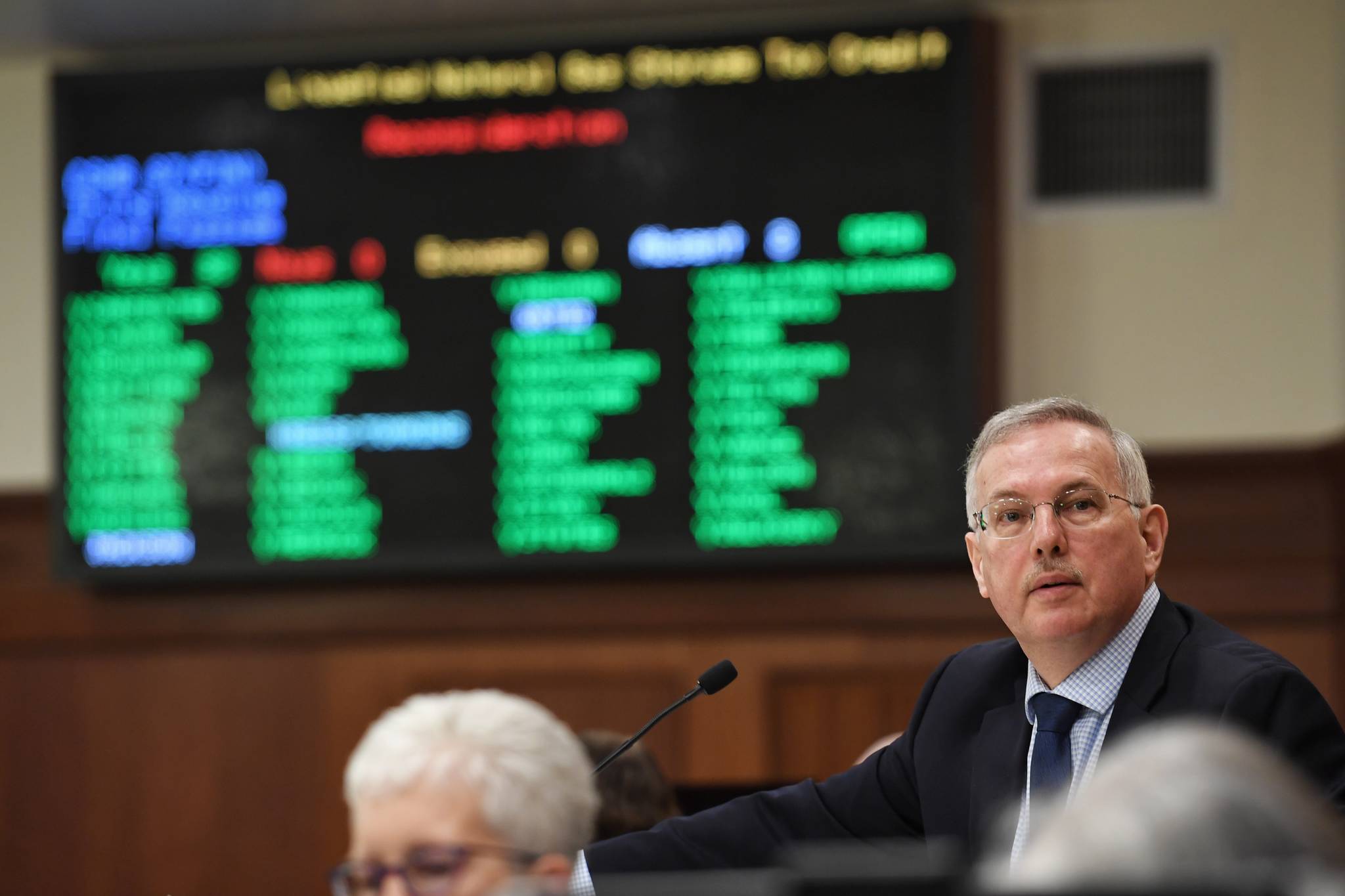The Alaska Legislature’s bill to substantially repeal and replace Senate Bill 91 passed the Alaska House on Monday night.
By a 36-2 vote at 6:40 p.m. Monday, the House passed the compromised version of House Bill 49, which imposes harsher sentences for many crimes. The Alaska Senate still has to vote to approve the bill before it goes to Gov. Mike Dunleavy’s desk for final approval. Dunleavy tweeted his happiness about the House’s action, praising the “common sense crime laws” in the bill in comparison to “the failed SB 91.”
Public safety has been priority # 1 for my admin, I’m pleased the House has passed legislation to repeal the failed SB91 & replace it with common sense crime laws that will give police, judges, & prosecutors the tools they need to address the crime wave in Alaska. #akleg 1/2
— Governor Mike Dunleavy (@GovDunleavy) May 21, 2019
Dunleavy’s tweet said he hopes the Senate acts quickly. Senate President Cathy Giessel told media members last week that she intends on giving senators a week to read over the final bill before voting on it. She projected that the Senate will vote the day after Memorial Day.
The Senate’s most recent vote on the bill was unanimously in favor. That was before a negotiating committee of representatives and senators met and reached compromises between the more lenient House version and the harsher Senate version. Even after compromises, Giessel said she expects there will not be any substantial changes to the bill before the Senate votes to pass it.
[What the Legislature left on the table: Ferries, addiction treatment, new revenue]
Reps. Adam Wool and Grier Hopkins, both Fairbanks Democrats, were the two opposing votes. They both said the costs in the bill are too high and that the bill doesn’t do enough to address drug addiction. Hopkins said that locking people up longer for more crimes doesn’t do anything to address the root causes of crime. Wool said that passing this bill, at some level, feels like an overreaction to rising crime rates.
“We’re increasing sentences seemingly on an emotional level, because it feels good in punishing people, is where I think we’re at right now,” Wool said.
Even those who wrote the bill agree with parts of what Hopkins and Wool said. The drafters of the bill, including Rep. Chuck Kopp, R-Anchorage, said last week that this bill will be extremely costly to the state and that inmates will have to be sent out of state. Rep. Matt Claman, D-Anchorage, one of the key figures in putting this bill together, told media members last week that this is only the first phase of addressing crime in the state and that the Legislature will need to include funding for treatment and reentry at a future date.
Today, we passed HB 49 toughening sentences for most crimes, giving law enforcement new tools to arrest auto thieves, requiring the timely processing of rape kits, making it easier to prosecute child abuse, & eliminating the marriage defense for rape. 1/2 https://t.co/ulR8a5n9zD
— Ivy Spohnholz (@IvySpohnholz) May 21, 2019
• Contact reporter Alex McCarthy at amccarthy@juneauempire.com. Follow him on Twitter at @akmccarthy.

